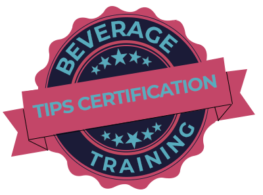In the vibrant and diverse landscape of New Jersey’s hospitality industry, responsible alcohol service is not only a legal obligation but also a moral imperative. As the state’s hospitality sector continues to thrive, the need for well-trained alcohol servers who can ensure the safety and well-being of patrons has never been more crucial, this is where TIPS Certification New Jersey steps in, providing a comprehensive and indispensable framework for alcohol server training.
TIPS Certification, recognized and respected nationwide, has emerged as the foremost program to equip alcohol servers in New Jersey with the knowledge and skills required to excel in their roles responsibly.
TIPS Certification goes beyond merely pouring drinks; it serves as a vital instrument in promoting public safety and preventing the adverse consequences associated with excessive alcohol consumption.In this introductory section, we will delve into how TIPS Certification empowers servers in New Jersey to effectively identify and address issues related to alcohol service. These issues include over consumption, underage drinking, and intoxication, which collectively contribute to reducing the risk of alcohol-related incidents.
New Jersey TIPS Certification Training Program
| Course Name | Hours | Price | Checkout |
|---|---|---|---|
| TIPS On-Premise Alcohol Server Training | 3 | $40.00 | Enroll |
| TIPS Off-Premise Alcohol Seller Training | 3 | $40.00 | Enroll |
| TIPS Replacement Card | $20.00 | Enroll |
This comprehensive program not only educates servers about their legal obligations but also provides them with practical strategies for effectively managing challenging situations. TIPS Certification emphasizes the importance of responsible decision-making, communication, and intervention techniques, making it an indispensable asset for those who serve alcohol in New Jersey.
Is it mandatory in New Jersey to enroll in TIPS Certification training?
Alcohol server certification is not mandatory required by the State Law of New Jersey, but is recommended by many employers in New Jersey, that’s because employers that train staff in a responsible alcohol service training program may gain mitigating benefits in the event of a violation.
More ever, certain insurance companies and employers of establishments in New Jersey have emphasized a mandatory certification for bars seeking liquor liability insurance coverage.
Employees should consider TIPS Alcohol Server Training as their self-responsibility towards the society, they should consider working for in the favor of their customers and owners to avoid breaking state owned laws and regulations regarding sale and purchase of liquor, maintaining healthy and protective environment for both the employers and customers.
Who can benefit from New Jersey alcohol seller-server training?
If you are engaged in the sale or service of alcohol, it is crucial to have a comprehensive understanding of and compliance with the various federal, state, and local alcohol regulations. Many state and local authorities typically mandate a minimum level of alcohol certification training for individuals involved in alcohol sales or service.
Responsible alcohol service training is highly advisable for all employees who have a role in alcohol-related activities. This encompasses a wide range of positions, including but not limited to:
- Servers
- Waitstaff
- Bartenders
- Cashiers at convenience stores
- Employees at liquor stores
- Bouncers or security personnel
- Hospitality industry staff
- Catering professionals
Ensuring that employees in these roles receive proper alcohol service training not only promotes legal compliance but also enhances the safety and well-being of both customers and the broader community.
What are the Objectives of TIPS Certification Training?
- Promote and instruct alcohol sellers and servers on responsible alcohol service practices;
- Identify signs of intoxication and employ diverse intervention strategies;
- Mitigate instances of Drinking under influence and alcohol-related fatalities;
- Prevent the sale of alcohol to minors and underage drinking;
- Establish safer environments within alcohol-serving establishments;
- Provide education to owners, managers, and staff on liability, state regulations, and local ordinances concerning alcohol service.
What career prospects become available to individuals upon successful completion of TIPS Certification training?
A wide array of employment opportunities may require candidates to hold an alcohol training certificate. Notably, this is particularly relevant for roles involving the service or sale of alcohol, whether for on-site consumption or off-site purchase. These positions encompass diverse roles such as bartenders, servers, and retail store clerks.
Moreover, the demand for individuals with alcohol training certificates extends beyond these roles. Many hospitality establishments, event venues, catering companies, and even security personnel in nightlife establishments seek employees who have completed alcohol training, as it reflects a commitment to responsible beverage service and legal compliance.
This certification not only opens doors to traditional alcohol-related jobs but also enhances one’s competitiveness in various sectors that value responsible alcohol service.
What’s the Minimum Age to Sell and Consume Alcohol in New Jersey?
Minimum age to serve alcohol is 18 years and to consume 21 years old.
For how long the TIPS Certification will be valid for?
TIPS Certification is valid for 3 years after the date of its successful completion.
